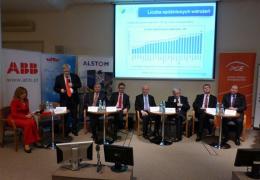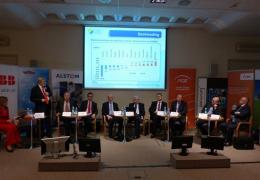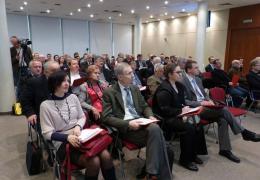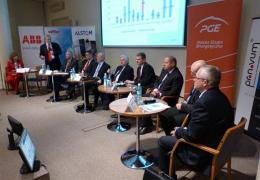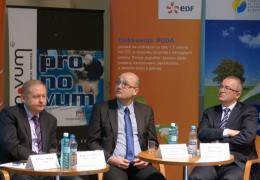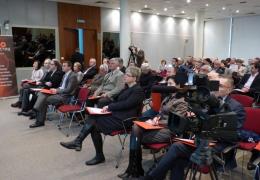Invitation for a debate
Retrofitting in the energy sector as an option for ensuring
energy security in the times of crisis
5 April 2013, 11.00 a.m., Seat of Polityka, Słupecka 6 St., Warsaw
Poland has a significant and unused potential for energy efficiency increase both in the production source (power plant, transfer networks) and by the end-user (industrial plants, schools, agriculture, residential buildings etc.) – the upgrade potential is considerable. Energy consumption level of a GDP unit in Poland (data according to Central Statistical Office from 2012) is three times higher than in the countries of EU-15 (EU before enlargement). The potential of efficient use of energy is the cheapest and at the same time the easiest to manage energy source and for this reason it should be given priority by the State in elaborating plans for modernization of the energy and construction sectors over development of new energy blocks and RES. Long term neglect in the sphere of investments in new power plants as well as EU regulations forcing Poland to close down old and inefficient blocks lie at source of Poland’s current difficult situation. We can expect considerable difficulties in balancing supply and demand for electric power and first and foremost in balancing power in pick hours. Thus quick retrofitting in power engineering and industrial energetics, heating, transmission and thermo-modernisation of buildings as well as exchange of collective/individual heat exchangers shall serve as a flywheel for economic development in the times of crisis and one of the ways for fulfilling EU requirements in terms of reduction of green house gases and environmental protection.
If losses of electric energy in various processes can be reduced at least by 10% (ca.15TWh/year) we could avoid the necessity of building new power plants of joint power of ca. 3000 MW and emissions of ca. 13 million tons of CO2 annually. Moreover, we could also reduce the amount of harmful by-products (dusts, ashes, sulphur and nitric oxids, radionuclides and the like). What is more, contrary to construction of new sources efficient use of the existing potential does not require additional infrastructure like terrain, connecting roads, utilities connections or waste disposals. The LCP Directive requires that Poland shuts down 5000 MW of power till the end of 2015. Consecutive 5000 MW shall be turned down as required by IED Directive till 2020. The major alternative to those changes is retrofitting blocks and thus reducing dangerous emissions to levels admissible by harsh EU regulations. Even wealthy Germans consider retrofitting several energy blocks (according to BWEW). Simultaneously, application of new retrofitting technologies (modernization and equipping) in heating plants, electro-heating plants, heating systems, heat exchangers as well as new combined blocks using new generation of turbines and innovative streaming ejectors, heat exchangers and efficient temperature measurement may increase savings by additional 30-40%. In other words, in existing blocks we could reduce costs and increase installed power (turbine) and power not lost. Modernization will allow for noticeable power increase and gradual closing of old objects.
We anticipate participation of the following guests:
- Tomasz Dąbrowski, Director of Energy Department, Ministry of Economy
- Robert Butzke, Vice Chairman of the Board Alstom Power
- Marian Strumiłło, Vice Chairman of the Board, Dalkia Poland
- Cezary Szwed, Director of System Development Department, PSE S.A.
- Jacek Kaczorowski, Chairman of the Board, PGE Górnictwo i Energetyka Konwencjonalna
- Jerzy Trzeszczyński, Chairman of the Board Pro Novum
- Krzysztof Burek, Vice Chairman of the Board Rafako
- prof. Krzysztof Żmijewski, Secretary General of the Public Board for the Development of Low-Emission Economy
We would be delighted if you could come.

